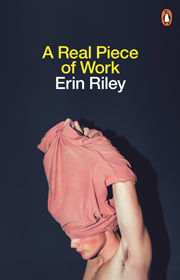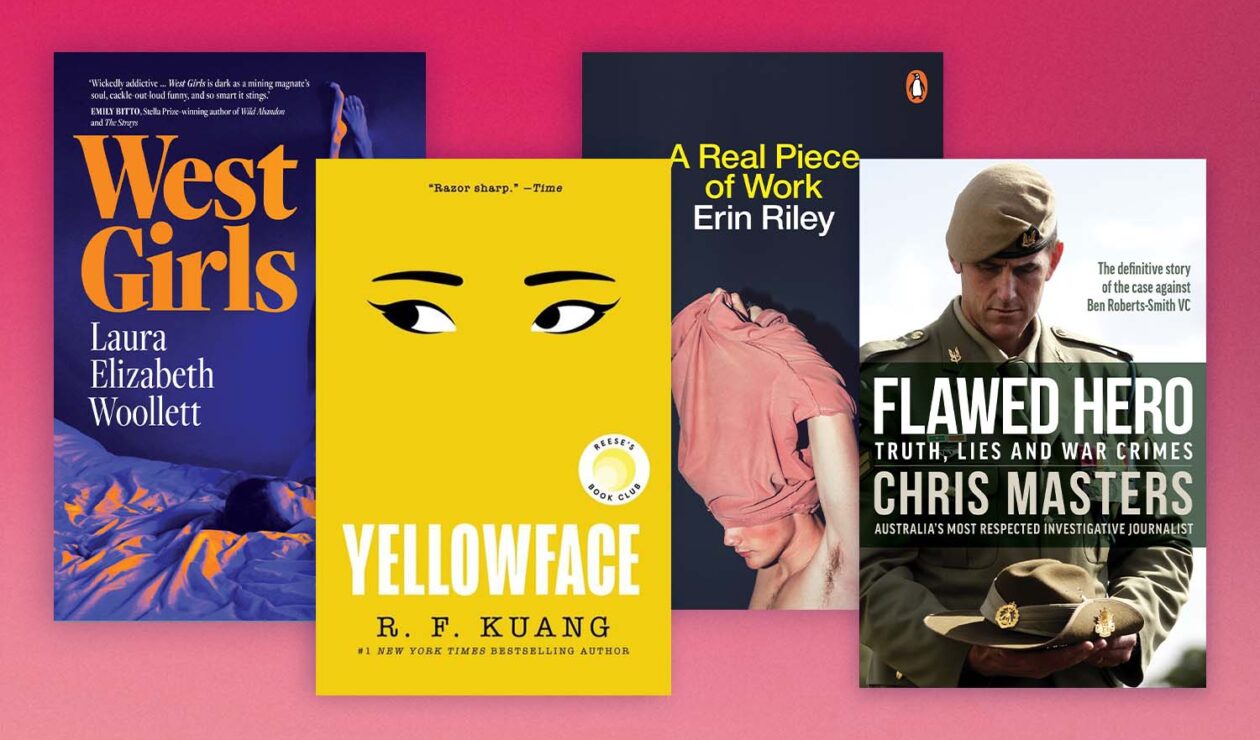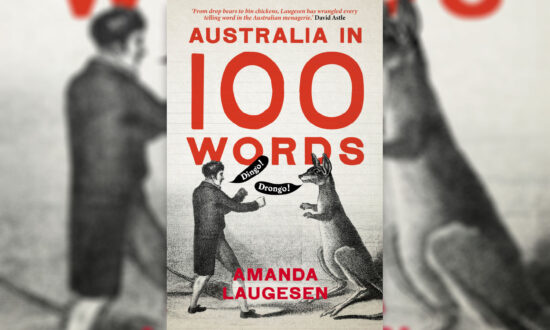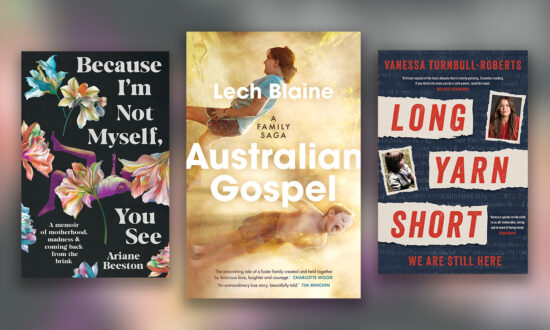Perhaps the most talked-about novel of 2023 is Rebecca F Kuang’s satire of race, publishing and toxic female friendship, Yellowface (HarperCollins). I bought it after my best friend texted, called and then texted again to alternately beg and order me to read it. Another friend reported arguments over it. When I last visited my local bookshop (Imprints, of course), bookseller Megan, whose taste I enjoy, had of course read it, too. “You’ll love the inside jokes about publishing,” she said.
“The night I watch Athena Liu die, we’re celebrating her TV deal with Netflix,” reads the novel’s first line, which nicely sets the tone: glibly nasty and deeply envious, narrating a hollow surface performance of niceness. June Hayward and Athena Liu are Washington DC writers who went to Yale together and occasionally hang out because they live in the same town. But while June’s debut novel went largely ignored, Athena is “stupidly, ridiculously successful” – and about to become more so.
June discovers the secret manuscript for Athena’s “grand and ambitious war novel” (about the exploitation of World War I Chinese labourers) – something “every Serious Author at some point does” – on her typewriter the night she fails to save Athena from choking on a pandan pancake. (Note: she does at least try to save her.)
 Recognising the novel’s brilliance, she types it on her laptop, fills in some gaps and makes some changes, like softening some of the white characters: “Athena’s original text is almost embarrassingly biased; the French and British soldiers are cartoonishly racist.” Then she submits it to her agent as her own and it’s snapped up for an eye-watering advance, accompanied by a dream marketing campaign. She’s published under the name Juniper Song. What ensues is a rollercoaster ride of success, subterfuge, scandal and guilt.
Recognising the novel’s brilliance, she types it on her laptop, fills in some gaps and makes some changes, like softening some of the white characters: “Athena’s original text is almost embarrassingly biased; the French and British soldiers are cartoonishly racist.” Then she submits it to her agent as her own and it’s snapped up for an eye-watering advance, accompanied by a dream marketing campaign. She’s published under the name Juniper Song. What ensues is a rollercoaster ride of success, subterfuge, scandal and guilt.
Cleverly, while June is a thorough villain, the publishing industry is deeply complicit every step of the way – from coming up with her Asian-sounding pen name, to simplifying “her” novel for the “American reader” (June’s editors are shocked at how passively she accepts every change), to all they deliberately don’t see when it might get compromise a cash cow.
June’s villainy is so one-dimensional, at first I wondered if I could spend a whole book with her. But while we’re never invited to like her, moments throughout that flag her disconnection from her family and hint at past mental illness offer enough – for me, at least – to make her credible, if monstrous.
Kuang is very clever in how she punctures constructed surfaces to reveal the tangle of issues still to be dealt with. Particularly, the way “diversity” is co-opted by buzzwords and performative gestures, but not meaningfully addressed. And the way white privilege is stubbornly invisible to those who benefit from blending in, but long to stand out. This is illustrated in an astonishing scene where June (who clearly hasn’t had Athena’s success because she is less talented, not because she’s white) rages “at being treated like a stereotype, like my voice doesn’t matter, like the entirety of my being is constituted in those two words, ‘white woman’”.
Laura Elizabeth Woollett’s new novel, West Girls (Scribe), also features a white girl who pretends to be Asian to cash in on the trend of diversity – but it’s much more murky and nuanced; her are actions less villainous and more the act of a flawed, insecure teenager shading into a flawed, insecure woman. Luna Lewis is first mistaken for Eurasian by CB, one of her high school’s Blondes clique (an unsubtle Mean Girls nod) because her school friends are Asian, and goes along with it to impress her, and gain access to the modelling agency CB refers her to. “You’re so lucky. Asian women know so much more about health and beauty,” CB tells her.
The novel is rich with moments like this, where the reader knows more than the characters, so appreciates the author’s sardonic humour through unwitting dialogue or interior observations. Sometimes, particularly with the adolescent characters, that comes from the characters’ scant knowledge of themselves, or the world they’re still learning, as in this moment, after CB doesn’t ask Luna anything about herself on an outing. “I was impressed; imagine being so pretty that you didn’t have to pretend to be interested in other people!” It’s funny and poignant and infuriating, all at once.
 Having an Indonesian stepfamily (who find her posturing hilarious) makes it easy for Luna to continue the ruse, especially when the agency suggests changing her name to Luna Lu – in a move that mirrors June’s publisher’s in Yellowface. Being “exotic” is a way to cash in, if you’ve got the goods to be a commodity: Luna will become an international model for a while, with magazine covers and an indie rock-star boyfriend. But West Girls doesn’t suggest it’s that simple. (And shows “blonde” is its own exoticism.) While Luna is cashing in on pretending to be Asian, her Indonesian stepmother teaches yoga and her friends – all of whom are rounded characters – work in a local factory.
Having an Indonesian stepfamily (who find her posturing hilarious) makes it easy for Luna to continue the ruse, especially when the agency suggests changing her name to Luna Lu – in a move that mirrors June’s publisher’s in Yellowface. Being “exotic” is a way to cash in, if you’ve got the goods to be a commodity: Luna will become an international model for a while, with magazine covers and an indie rock-star boyfriend. But West Girls doesn’t suggest it’s that simple. (And shows “blonde” is its own exoticism.) While Luna is cashing in on pretending to be Asian, her Indonesian stepmother teaches yoga and her friends – all of whom are rounded characters – work in a local factory.
Meanwhile, in another segment of the novel, a South African daughter of a mining magnate falls in love with an Aboriginal classmate and is kicked out of home – taking refuge in sharing a friend’s rent-free flat – when she tells her father about him. Her chosen exile is presented as a spectacularly out-of-touch tantrum: in all her time away (which we assume is temporary), her beloved, whose opinions she finds “ridiculous”, barely exchanges a word with her.
“I couldn’t understand how a boy who studied Law at the state’s best university could be so against progress, so hung up on things that happened hundreds of years ago,” she reflects. It’s an arch, devastatingly effective satire of empty fetishism masquerading as rebellion.
West Girls, set between Western Australia and overseas trips, interweaves the stories of a cast of young women – variously craving glamour, belonging and attention – with Luna recurring most frequently, sometimes as narrator, sometimes as a character viewed from the outside. Woollett’s women and girls are longing, awkward, oblivious, hyperaware. They are lustful, judgmental, aching. Lonely and loved.
Woollett weaves a thicket of contrasting emotions, instincts and actions through her stories. Her characters are rarely nice, but vividly real and frequently poignant. And her sly commentary, sometimes open as a gift, sometimes urging the reader to work to put it together, is brilliant.
Non-binary social worker Erin Riley’s memoir in essays, A Real Piece of Work (Penguin), is bookended by their excited dinner to celebrate their engagement with their parents and the devastation of being disappointed by those same parents on their wedding day. It opens with the hope of feeling accepted: “Mum really has seen us in a way I’d not imagined was possible.” But in the final essay, a rift opens when their parents can’t rise to the challenge of a wedding day Riley and their partner made “as authentic and as strange as we wished”. (In their speeches, Riley’s parents misgender the couple and bewilderingly emphasise the painful past, instead of the joyful future being celebrated.)
The problem is not a lack of love, but an inability to communicate across a cultural divide – and it’s devastating. It seems to illustrate a trajectory Riley has travelled throughout their life. “It’s not who we are that’s wounding, but the reaction to who we are,” they reflect in another essay.
 At the wedding, Riley writes, social norms were flipped for the day. Their parents were unable, for one day, to operate within norms that felt unnatural, in a way that required sustained, conscious effort. In a way, this makes sense: it sounds hard. But looked at another way: that’s how Riley, their spouse and their friends – “queers and freaks” – operate most days, in a world not engineered for them. Interpreted this way, their hurt and heartbreak makes sense.
At the wedding, Riley writes, social norms were flipped for the day. Their parents were unable, for one day, to operate within norms that felt unnatural, in a way that required sustained, conscious effort. In a way, this makes sense: it sounds hard. But looked at another way: that’s how Riley, their spouse and their friends – “queers and freaks” – operate most days, in a world not engineered for them. Interpreted this way, their hurt and heartbreak makes sense.
There are 20 essays in this collection, and they range across topics, from Riley’s OCD and ADHD, and their long journey to recognise and embrace their transness, to their queer schizophrenic uncle, and working with clients in their role as a social worker. This idea, of the difficulty of navigating a world not engineered for you, runs throughout most of them. Of their clients, Riley writes: “Under capitalism, not everyone can participate in the market. They cannot simply try harder.”
The essays are deeply empathetic, and actively drill to understand the source of things. Sometimes that’s personal: Riley recognises that their mother’s negative response to their request for a pronoun adjustment is “for her, adding to her own deeply held ‘not good enough’ story”. And sometimes it’s systemic, as when reflecting on the predicament of dementia patient Patrick, who is a danger to himself at home, won’t voluntarily enter aged care and no longer has a support service that will fill this gap. “The assumption is that people – whoever they are – can figure things out. And if they can’t, then too bad.”
While there’s a popular idea – satirised in Yellowface and West Girls – that “diversity” is the new privilege, you don’t have to look far to see that real privilege is still very much embodied by straight, white men who went to private schools and can perform bravado.
Chris Masters and Nick McKenzie partnered to expose the ugly truth behind decorated war hero Ben Roberts-Smith, whose physical embodiment of the classic Anzac war hero made him easy to venerate, and the role of peer pressure and a culture that celebrates violence, in creating an environment where he could thrive. (“Soldiers would do ‘bad stuff’ to fit in. It becomes part of the banter,” reads a report cited on the culture of special operations soldiers.) The years-long collaborators – who were sued together for defamation by Roberts-Smith, in a case that was dismissed in June – each published separate books last month on their investigation.
 I’m reading Chris Masters’ Flawed Hero: Truth, Lies and War Crimes (Allen & Unwin), which I chose of the two because I’ve always admired the multiple Walkley winner, whose work led to – among other things – the Fitzgerald Inquiry, and the end of Joh Bjelke-Petersen’s government in Queensland in the 1980s.
I’m reading Chris Masters’ Flawed Hero: Truth, Lies and War Crimes (Allen & Unwin), which I chose of the two because I’ve always admired the multiple Walkley winner, whose work led to – among other things – the Fitzgerald Inquiry, and the end of Joh Bjelke-Petersen’s government in Queensland in the 1980s.
Flawed Hero is as much about the art of investigative journalism as it is about Roberts-Smith and the SAS culture that let him thrive. Masters takes us through his process, unpacking how journalism works and how it’s changing as he goes. He reflects on the difficulty of being a freelance investigative journalist (paid a dollar a word, not for your time – and it takes time; it’s “quicksand and shadowland”). He marvels at his good fortune, being backed by the Nine newspapers’ legal team, and reflects on the investment it takes to produce this kind of risky journalism that investigates well-resourced power. And he analyses his missteps, lucky discoveries, collaborations and techniques as he goes.
Most importantly, of course, he uncovers Roberts-Smith’s behaviour – which extended, in his civilian life, to sending threatening letters to witnesses. He also recruited a “personal spy” (who quit after he realised Roberts-Smith had tricked him into mailing the threats for him).
Masters charts how support rallied around Roberts-Smith, even as the evidence mounted. And how he received awards unconnected to his war work, like Father of the Year in 2013, and became a mental health spokesperson, including as deputy chair of former prime minister Tony Abbott’s advisory committee on mental health. (Soldiers who’d witnessed his bullying “hooted” at the latter).

Get InReview in your inbox – free each Saturday. Local arts and culture – covered.
Thanks for signing up to the InReview newsletter.
Masters also weighs the question of how to negotiate morality in a field that requires the ability to kill, and there are many examples of defence forces people eloquently articulating their concepts of morality. “We want a functional psychopath,” a unit psychologist tells Masters. “They have got to want to hurt. We want them controllable and reintegrateable, but if they become attack dogs you can’t control…”
When I bought this book, I was asked why on earth I’d want to read about this. I was asked again today. I’m not interested in war stories, or the SAS. But I am interested in stories that unpick power and privilege – and force us to think about how we can restructure society to make injustice less likely.
Jo Case is a monthly columnist for InReview and deputy editor, books & ideas, at The Conversation. She is an occasional bookseller at Imprints on Hindley Street and former associate publisher of Wakefield Press.
Support local arts journalism
Your support will help us continue the important work of InReview in publishing free professional journalism that celebrates, interrogates and amplifies arts and culture in South Australia.
Donate Here




